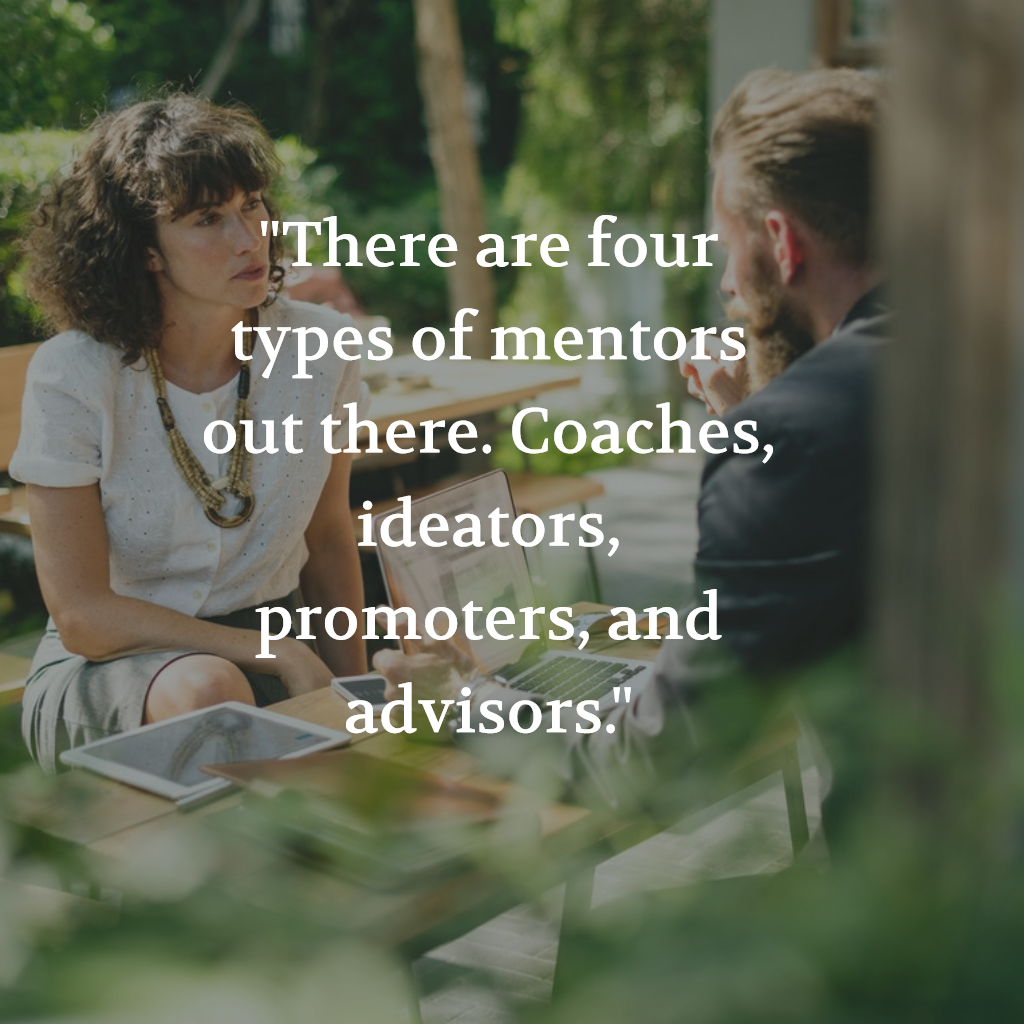I had the chance to speak with Tai Tran, Forbes 30 Under 30 and LinkedIn Top Voice, and ask him some questions about the topic mentorship and how mentors changed his life.
1. Mentorship in general (why?)
Ceyhun-Yakup: Why is it important to have a mentor?
Tai: I never grew up understanding the importance of having mentors. As an immigrant, I always felt the need to prove it to the world that I can accomplish things on my own. On top of that, being young also meant I was oftentimes too prideful to ask people for help. Many young people, including myself at one point, never realize how asking for help from people around you, including mentors, can radically change your life and career.
It wasn’t until when I attended UC Berkeley and started my career that I realized the impact of mentorship. My closest mentors have bridged me to opportunities I could have never imagined myself.
They served as my role models and advisors. Most mentors have decades of experiences under their belt. They’re in a position to give you pointers on challenges or questions you may be facing in your career today. Whether it’s how to communicate effectively at work or how to negotiate your first salary out of college, they’ve been there and done that. Mentors provide a perspective that you might not able to get elsewhere.
Most importantly, great mentors can help spot your potential before you can even see it yourself! You might think that you’re only good at one thing, but they will tell you that your skill sets are applicable to more than just one job, career, or field!

Ceyhun-Yakup: What kind of mentors did you have? How did they help you?
Tai: Just like a company’s board of advisors, you want different kinds of mentors in your life. There are four types of mentors out there. Coaches, ideators, promoters, and advisors. Some mentors may even play multiple roles!
Coaches are your cheerleaders. They care about you beyond what you do in your career. They’re invested in your personal accomplishments too. Coaches want you to succeed in life, cheerleading you on personal endeavors, like volunteering, starting a non-profit, or running a 5K marathon. Some of my closest mentors are also good friends.
Ideators are mentors who love building things. They enjoy being a sounding board to all your ideas. Whether it’s your next startup idea or a product you want to create. Beyond inspiring you with their own perspectives, they’ll also challenge you to see flaws and gaps in your thought process.
Promoters are mentors who are masters of connections. They can vouch for you at any given occasions. As a connector, they’re happy to make introductions to people who you might not have access to. These mentors know the importance of relationships and are happy to help you find them.
Advisors as the name implies, will advise you in any situations. They can help you navigate tough career and business decisions. Given their wealth of knowledge and experiences, they can advise you on potential pitfalls and outcomes you might not be aware of when forming an important decision.
Ceyhun-Yakup: Why would a mentor help me on my path? What is the motivation of the mentor to help other people?
Tai: Because they care more about the mentorship process beyond the results that come out of it. People who mentor know that mentorship is about giving back and paying it forward. They’re not here to get something from you.
Their biggest motivation is in your own success. Great mentors want to provide you with the toolkits and support system, and see where that will take you. They want you to establish your own path to success.
The best way to repay your mentor is to maximize the time and advice they give you. Most importantly, give back and mentor the next generation once you make it to the position of power and influence.
2. How to find the right mentor (how?)
Ceyhun-Yakup: How can I identify who is the right mentor for me?
Tai: Like many things in life, you can get a good sense whether you and your mentor are meshing well together. Compatibility comes down to a many of factors, here are a few: their background, personality, and mission. Notice I didn’t mention industry or job title. Because you can find great mentors outside of your industry or field. Just like company’s culture, find mentors who are a good fit for you.
Some of my mentors have shared a similar upbringing, like coming from a first generation and immigrant family. While others shared similar affiliations, like my alma mater, UC Berkeley and the Haas School of Business.
The right mentors are people who you can have conversations with for hours on end without feeling bored or suffocated. Kind of a like a good friend.
Ceyhun-Yakup: How can I get in contact with the mentor when he/she lives and works in another country?
Tai: Do your research! Cast your net wide. For every mentor that I have today, there have been a couple 100 that never responded to me. There are no grudges. I understand that the world of tech and the world of Silicon Valley is very noisy and very busy. You come to accept that some mentors who accept to chat with you simply accepted because you reached out at the right time. You reached out to them at the time when they felt generous or had spare time to meet. Or you got them at the right time because your story resonated with them.

The next thing I want to talk about is personal branding. Personal branding helps you a lot when it comes to finding mentors and finding people that will be your advocates. For the most part, your personal brand helps stitch a fuller picture of you before someone meets you. Personal brand is what people think of you when you’re not in the room.
When you’re not there to introduce who you are, you need to have that personal brand that’s online 24/7. When someone looks at your LinkedIn, they look at your social media, they have a picture of who you are. They do a 15 second glance. He’s a writer. He’s very passionate about mentorship and working for an impact. Even before they meet me, they’re able to do a quick 15 second glance. Now they’re like this is a person that I want to invest my time in.
They don’t want people who are just there for industry advice. This person has potential and value. If I’m able to help mentor this person, their growth spurt is going to be exponential. Good mentors will stay with you through your career. That’s where personal branding comes into play. Mentors who often reached out by many people at a given time. They’re going to have a couple seconds to assess you like a company when you’re applying to a job. If you don’t have that personal brand established, now you’re just playing by luck. For me, can you turn luck into a product of design? Personal branding gives you some control over how people perceive you and that gives you an upper hand.
Ceyhun-Yakup: How often should I meet the mentor?
Tai: As often as you both are comfortable. Remember that your mentors have day jobs and are busy themselves. They’re mentoring you on top of their full-time career. Some may even have a family and kids. Be mindful and respectful of their time.
My recommendation is to do informal check-in’s through email and text. If you’re not sure how often that want to meet, you can be upfront and ask them: “do you mind if we do a follow up in a month or so?” or “can we meet again sometime in March?”
If you’re looking for something specific, I typically meet up with my mentors who are local every two months or so for coffee or lunch. But I’d message them over text or email whenever I run across readings I think would interest them or if I have any questions. And they do the same for me as well!

Ceyhun-Yakup: Are there any online tools or websites that offer help with finding the right mentor?
Tai: Skype and Google Hangout are your best friends to meet mentors who are not local! Meeting people is no longer just based on geo. You can find your mentors across the world by setting up a virtual video chat.
Ceyhun-Yakup: What can I do for the mentor? Is he expecting something when he mentors me?
Tai: Less about what you can do for your mentor, but more about how you can help others around you. Remember to pay it forward once you’ve in a position of power or influence. When the next generation of young people reach out to you, play an active role in mentoring them. Mentors don’t expect you to pay them back in favors or monetary value.
If you really want to do something for them, here’s my advice. Instead of “what I can do for my mentors” reframe that to “how can I help my mentors?” If you ever come across resources that they may find helpful, make sure you send it over their way. If you’re building a startup and can use their advice, consider asking them to join your company’s board of advisors. If they ever reach out to you for advice or second opinions on something, make sure you’re responsive and assist to the best of your ability.
Ceyhun-Yakup: Thank you very much for this interview.
Zero to Infinity is a must listen to podcast for entrepreneurs and young leaders. The podcast inspires through stories and lessons and helps to go even through our toughest and zero moments. In these moments we can still find infinity and Tai Tran shows how to make infinity countable.
Originally published at journal.thriveglobal.com


